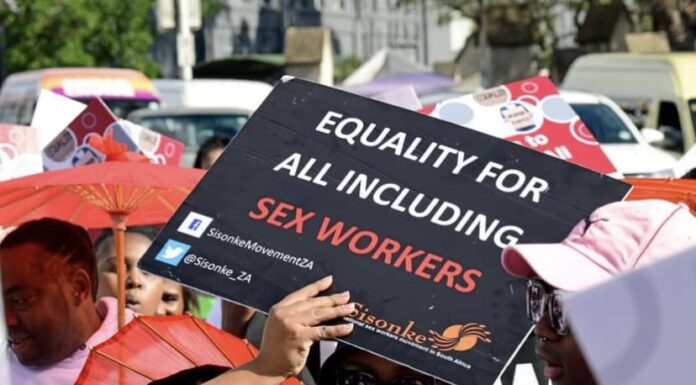The South African National Aids Council (Sanac) has spoken out against the discrimination of sex workers seeking medical care.
According to the council, inequity, stigma, and discrimination still exist in communities and throughout the healthcare system.
The council expressed its concerns on Tuesday in KwaZulu-Natal, before the eighth South African TB conference began. The conference is held at the Durban International Convention Centre (ICC).
Sanac chairperson Steve Letsike stated that they could not stand by while people continue to die from tuberculosis.
Integrated programmes to reach high-risk population
“We must be clear on our position regarding our response to the disease. We need to expand and scale up integrated programmes. This is order to reach more high-risk populations and maximise impact.
“We need to have a plan on how to address disparities that still exist in the TB programme,” said Letsike.
He stated that the original charter was created more than 30 years ago in response to HIV and TB. However, that does not stop the discrimination.
“We have come a long way since then. However, human rights violations, including stigma and discrimination, persist in our communities. [It also exists] in the healthcare system, particularly among key and vulnerable populations.”
Letsike said they call for equality for all, including sex workers.
The council took this stand as Zimbabwe proposed to re-criminalise HIV by adding it to the list of sexually transmitted infections (STIs). It is currently criminalised in Section 78 of the Criminal Code.
Criminalisation of health issues fuel stigma
Sonke Gender Justice, a South African NPO that advocates for gender justice, also added its weight on the issue. It said communicable diseases, including those that are sexually transmitted, are public health issues, not criminal issues. Criminalization is not an evidence-based response to public health issues, it said.
“Such laws and prosecutions threaten the rights of people living with HIV, and other STIs. [Their rights to] to equality, freedom from discrimination, privacy, human dignity, health, liberty, and the right to a fair trial, amongst others.”
The NPO said in many African countries, HIV criminal laws have been disproportionately applied against women living with HIV.
“Women are usually the first to know of their HIV status, often due to accessing testing during antenatal care. Being the first to test positive, women may be vulnerable to being falsely blamed for bringing HIV into the relationship. Women living with HIV are also vulnerable to violence and abuse in intimate relationships. And the threat of prosecution only increases that vulnerability.”



